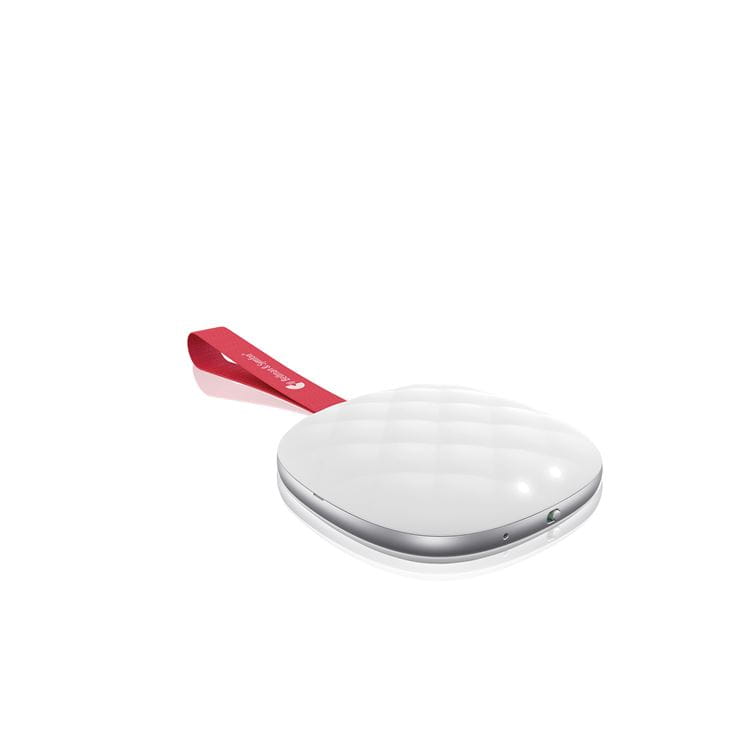Connected health
Let Nordic's expertise help you deliver the health tech your customers rely upon

Nordic Semiconductor today announces that Gothenburg, Sweden-based Bellman & Symfon, has selected Nordic’s nRF52832 Bluetooth® Low Energy (Bluetooth LE) multiprotocol System-on-Chip (SoC) to provide the core processing power and wireless connectivity for its ‘Vibio’ bed shaker alarm.
Vibio is a silent alarm and notification system designed for people with hearing loss, heavy sleepers, and couples with different sleep schedules. The 94 by 94 by 27mm device is placed under a pillow or mattress and emits strong vibrations to wake the user at a time configured from the ‘Vibio’ app on a paired Bluetooth 4.0 (or later) iOS or Android smartphone or tablet computer. Once the alarm goes off, the user can pull a strap on the device once to activate the snooze feature, or twice to turn off the alarm.
From the app, users can not only set alarms, but also adjust the amplitude of the vibrations and change the alarm sound. In addition to a silent alarm clock, the device can also function as a notification system and be programmed to vibrate when the user receives a phone call or an SMS message to their smartphone.

The nRF52832 SoC’s high link budget 2.4GHz radio (supporting Bluetooth 5.2, Bluetooth mesh, ANT™, NFC, and 2.4GHz proprietary RF protocol software) offers a maximum receive (RX) sensitivity of -96-dBm and a maximum transmit (TX) output of +4-dBm, for a total link budget of >100dBm. This helps support an open air range of up to 30m for Vibio, enabling the user to configure the device even from another room. The alarm functionality of the ‘set and forget’ device ensures the alarm will operate even if the smartphone is out of range or switched off.
Vibio employs a 750mAh Li-ion rechargeable battery, providing up to three months of use between charges, thanks in part to the ultra low power characteristics of the Nordic SoC. The nRF52832 has been engineered to minimize power consumption with features such as the 2.4GHz radio’s 5.5mA peak RX/TX currents and a fully-automatic power management system that reduces power consumption by up to 80 percent compared with Nordic’s nRF51 Series SoCs.
Nordic’s nRF52832 multiprotocol SoC combines a 64MHz, 32-bit Arm® Cortex® M4 processor with floating point unit (FPU), with the multiprotocol radio and 256/512kB Flash memory and 32/64kB RAM. The nRF Connect SDK [Software Development Kit] is recommended for nRF52832 software development. The nRF Connect SDK integrates the Zephyr RTOS, supports applications using Bluetooth LE, Bluetooth mesh and Thread, and includes examples, Bluetooth LE profiles and driver support for all peripherals. The SDK also includes a migration of Nordic’s Bluetooth SoftDevice Controller from the company’s proven SoftDevices used with the nRF52 Series. The nRF5 SDK can still be used for development with Nordic’s S112, S113, and S132 SoftDevice, a Bluetooth 5-certifed RF software protocol stack for building advanced Bluetooth LE applications.
“The main driver to use the nRF52832 was its stability and power consumption,” says Fredrik Petersson, CEO Europe, Bellman & Symfon. “With the Nordic SoC we were able to achieve a staggering three months battery life between charges. With the previous [competitor] chipset we could only achieve two weeks.
“Also because time-to-market is very important to our company, the development and hardware design support and the Nordic DevZone community were key reasons why we chose Nordic.”
Let Nordic's expertise help you deliver the health tech your customers rely upon